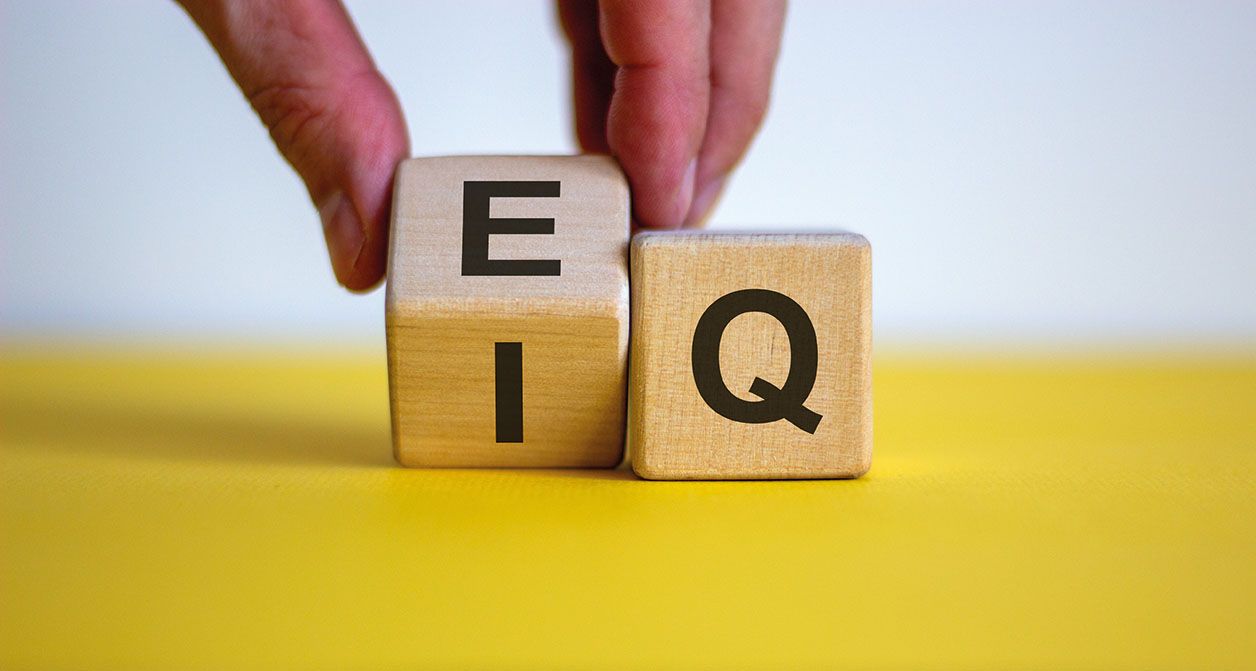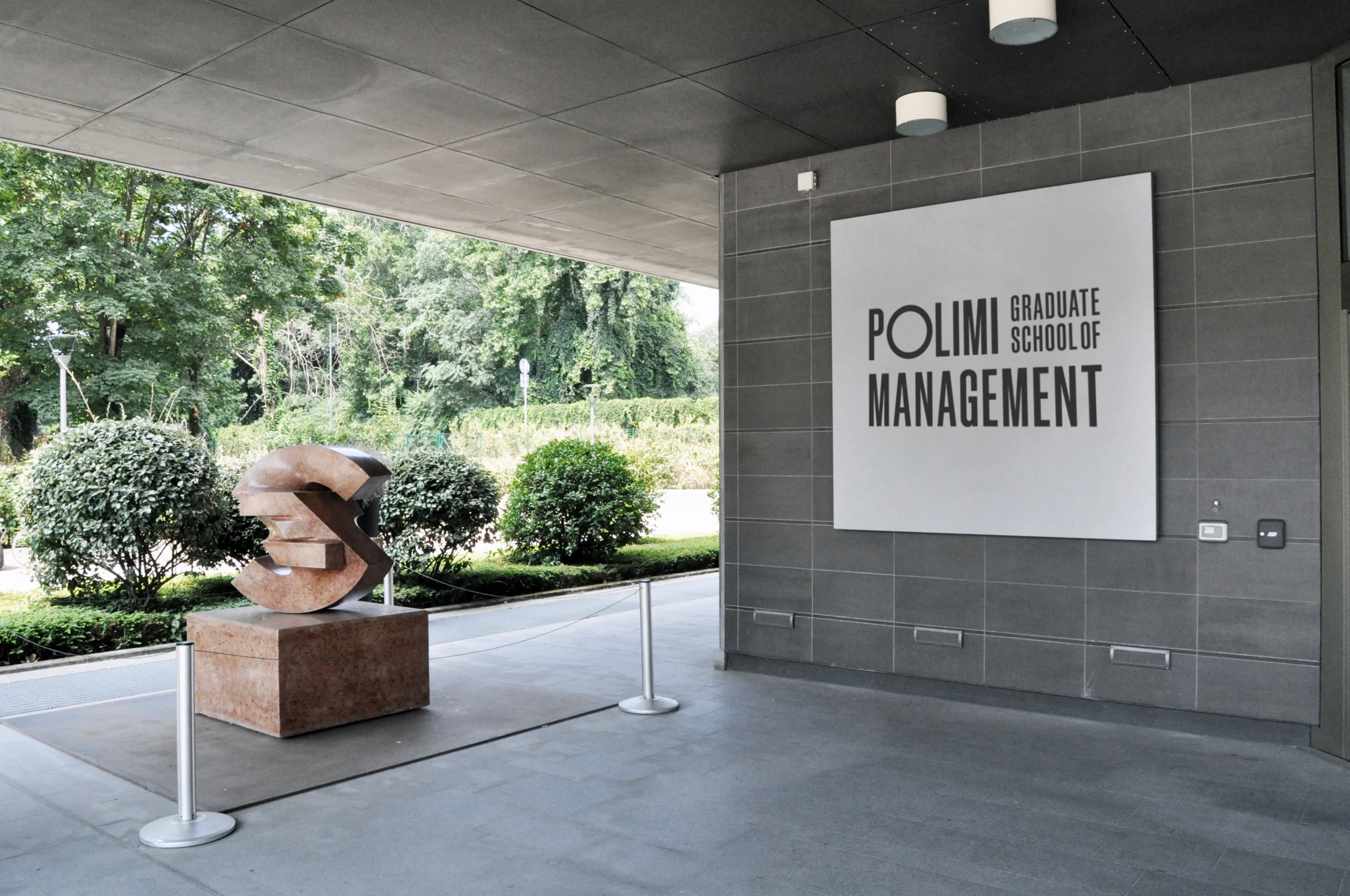The power of understanding

John E. Kaye
- Published
- Executive Education, Home

Training and development consultant Salman Raza explores why emotional intelligence has become vitally important in the post-pandemic workplace
As the world learns to adjust to life with Covid-19, workers are finally heading back to the office. After two and a half years of virtual meetings and comfortable clothing, the social nuances of in-person interactions may feel foreign, making emotional intelligence (EQ) more important than ever.
There is a plethora of skills required to navigate the workplace successfully, and high emotional intelligence is no exception. Emotional intelligence is the capacity of individuals to recognise their own and other people’s emotions. It is the ability to differentiate between a variety of feelings and label them appropriately. We use emotional information, or cues, to guide our thinking and behaviour. Sometimes emotional information is presented in body language. Other times it is presented by tone of voice or choice of words. The key is to build your awareness to determine what these cues mean and how to respond accordingly.
How do you build upon this workplace skill and why is it so important? Let’s first take a look at the role inner awareness plays.
Label your feelings
Often when we experience an emotion, we react to it before identifying it. Practice saying to yourself in your head “I feel scared. I feel annoyed.” Remember, different emotions come with different degrees of intensity. Practice with positive uplifting emotions as well.
The pause you take to identify and name your feelings will buy time for you to respond instead of reacting impulsively. When we react to emotional stimuli, sometimes logic and reason go right out the window. Taking a moment to process your emotions will help you identify this emotion in others too, thus enhancing your EQ capabilities.
Always on display
In the virtual office you could mute yourself, or sigh, even vent to your dog about workplace grievances. In an in-office workplace, there are fewer ways to conceal your reactions. In fact, some colleagues may resort to passive aggressive behaviours and conceal what is bothering them to avoid conflict. One of the biggest culprits that contribute to workplace dysfunction is passive aggression. When you don’t voice your concerns to the proper entity, and instead let them grow inside of you like a volcano, you will eventually blow. Practice initiating constructive and respectful conversations with your colleagues and management. This will help you build trust with colleagues and promote a culture of respect.
Remember to intentionally check in with your body language. It can be easy to heave a sigh during a particularly unengaging meeting only to notice everyone in the room is looking at you. Be sure to engage in appropriate eye contact and neutral body positioning too.
The importance of social awareness
Let’s look beyond the self for a moment. Emotional intelligence is not just about looking at the self; it is also about recognising and correctly identifying emotions in others. We look at others we can ask ourselves: “What is that person feeling, and how did those feelings arise?” Notice we do not ask ourselves ‘why’ they feel the way they do. Instead, we open the gates of exploration with a ‘how’ question. How did the feelings happen?
We do this because it helps create a sense of understanding for the other person’s emotions. If we ask why they are feeling a certain way, we may never know the answer. We are not them. But if we change the lens to ask ourselves how the feelings happened, it becomes easier to surmise the inciting action or circumstance.
Social awareness awakens our sense of empathy. By continually improving this skill, we can channel our empathy for others. Be attuned to the things that wake up your human side. Empathy can pacify negative emotions instantly. Even if it is just a small feeling in your stomach, don’t ignore it. Empathy is essential when it comes to emotional intelligence. Feeling a little empathy fatigue? Imagine the other party to be someone you deeply care about. What about that irritating colleague? Imagine they are your best friend, just for a few moments. Notice how your attitude changes with this visualisation exercise. It is important to remember that everyone is responding to post-pandemic reintegration differently.
Train yourself to see the hidden signs of your environment. Be on the lookout for tone of voice, body language, body proximity, and eye contact of other parties. Can you determine when your colleague is nervous? Or if your boss seems distracted by something? These non-verbal cues can help you determine the best way to respond. As you play detective and focus your attention outward, you are strengthening your emotional intelligence.
Post-pandemic relationship management
The pandemic has been stressful for just about everyone. Now, as employees return to the office, some work relationship dynamics may have changed. Emotions that could be concealed behind the screen are now on full display in-person. Relationship management is about determining how someone feels and identifying how you want them to feel.
When someone is angry at us, we want them not to feel angry with us. Using self-awareness, we can determine what actions we need to take to help the other person not feel angry. These questions and self-reflection may seem complicated, but you are already doing many of these things without even thinking about it. When you introduce a new person into your work team, you probably go the extra mile to make them feel welcome. When you see someone who is uncomfortable, instinct tells you to help them feel more comfortable.
Remember that you are human, and you are flawed. Things are going to upset you and work will stress you out from time to time. The best thing you can do is take each situation you encounter and learn from it. Our mistakes are our greatest teachers. High emotional intelligence also means having a high degree of self-compassion and self-awareness.
By practicing these tactics, you too can elevate your emotional intelligence and see the benefits in your professional and personal life. Above all, awareness of your own emotions and those surrounding you is key. Once you process that information, it is up to you to determine the most appropriate way to respond.
You can do everything in your power to ensure you are in control of your ability to respond instead of reacting, your body language, your emotions, and your vocal tone. But there will always be instances where the reaction and perceptions of others are completely out of your control. We all draw upon our past experiences, our personality types, and our current mood and state of mind when interacting with others. Sometimes all we can do is work on ourselves and hope modelling that self-awareness will inspire our colleagues to do the same.
About the author

Salman Raza is founder and CEO of training and development consultancy Razalution Bureau. razalution.com
RECENT ARTICLES
-
 Hannu Tihinen on strategy, leadership, and the value of an EMBA
Hannu Tihinen on strategy, leadership, and the value of an EMBA -
 European MBAs adapt to AI as Aalto overhauls executive education
European MBAs adapt to AI as Aalto overhauls executive education -
 From dialogue to action: how emba X prepares leaders for a new era of responsible innovation
From dialogue to action: how emba X prepares leaders for a new era of responsible innovation -
 How Europe can learn faster: turning AI into safer, smarter adult training
How Europe can learn faster: turning AI into safer, smarter adult training -
 Aalto EE launches Aalto Tech EMBA to equip executives for digital transformation
Aalto EE launches Aalto Tech EMBA to equip executives for digital transformation -
 Supply chains are being remade. Leadership must be too
Supply chains are being remade. Leadership must be too -
 Why the real barrier to AI success sits in the boardroom
Why the real barrier to AI success sits in the boardroom -
 ETH Zurich and the University of St.Gallen redefine executive education with emba X, a new model of responsible leadership
ETH Zurich and the University of St.Gallen redefine executive education with emba X, a new model of responsible leadership -
 Why leadership is the strongest defence in South Africa’s schools
Why leadership is the strongest defence in South Africa’s schools -
 Porto Business School launches executive programme on AI strategy
Porto Business School launches executive programme on AI strategy -
 POLIMI Graduate School of Management strengthens global reputation in MBA and master’s rankings
POLIMI Graduate School of Management strengthens global reputation in MBA and master’s rankings -
 Trinity Business School strengthens standing in global MBA rankings
Trinity Business School strengthens standing in global MBA rankings -
 Meet the class of 2025… and their children. Why mid-life university learning is on the rise
Meet the class of 2025… and their children. Why mid-life university learning is on the rise -
 University of Michigan launches executive programme for chief data and AI officers
University of Michigan launches executive programme for chief data and AI officers -
 International education: A vision for global citizens
International education: A vision for global citizens -
 How to create lasting social change? Build a community
How to create lasting social change? Build a community -
 Tomorrow’s world needs Dyslexic Thinking
Tomorrow’s world needs Dyslexic Thinking -
 Why family therapy is the best investment you can ever make
Why family therapy is the best investment you can ever make -
 How EQ can give us the edge over AI
How EQ can give us the edge over AI -
 A true root and branch approach
A true root and branch approach -
 It's fine to say you're not ok
It's fine to say you're not ok -
 Are you willing to change with your organisation?
Are you willing to change with your organisation? -
 Emerging markets: Online learning for women unlocks economic potential
Emerging markets: Online learning for women unlocks economic potential -
 A programme of urgent importance
A programme of urgent importance -
 Why progress is not parity
Why progress is not parity



























